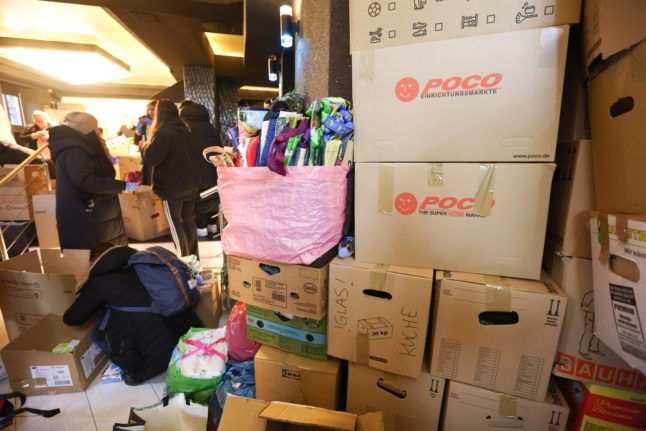“We’re looking at the possibilities for helping those who want to get out of there,” prime minister Fredrik Reinfeldt said on Thursday.
The primary objective is finding space on departing airplanes, and Reinfeldt estimated that up to 1,000 Swedes would take up the offer of a government-coordinated evacuation.
According to the foreign ministry, there is a maximum of 2,000 Swedes in Japan.
Reinfeldt added that a decision on a possible evacuation will be make “shortly”. The government is now working with various agencies in order to arrange transport from Japan.
“It’s going to happen very soon,” he said.
When asked whether the situation was really so serious that the Swedish state would offer to pay for the evacuation of all Swedes, Reinfeldt pointed to the complexity of the crisis unfolding in Japan.
“We have to error on the side of caution in making assessments of that type. This is both about the effects of an earthquake, of a tsunami, of widespread physical destruction and human suffering, of nuclear problems, but also the fact that we can expect huge movements of people in a very densely populated country. Transportation and everything regarding infrastructure can get very complicated,” he said.
Earlier on Thursday, the Swedish foreign ministry has extended its warning against “non-essential” travel to cover the entire country.
The foreign ministry’s travel warning is based on the Radiation Safety Authority’s (Strålsäkerhetsmyndigheten – SSM) assessment of the situation, Anders Jörle at the foreign ministry told the TT news agency.
“The situation remains serious. The over-riding factor is the problem with cooling the fuel rods in (reactors) 3 and 4 and as they are exposed without a cover there can be massive emissions,” said Björn Dverstorp at SSM.
Furthermore the ministry recommends that all those within a 80 kilometre radius of the Fukushima nuclear power plant to leave the area.
“This is a precautionary measure where we presume they will not be able to manage the cooling. Nothing has in fact occurred but we have to consider the worst case scenario,” Dverstorp said.
The foreign ministry estimated that there are around 2,000 Swedes currently in Japan. Anders Jörle added that anyone currently in Japan and feeling concerned over the situation should consider leaving the country.
“But this remains a decision for the individual concerned,” he said.
Cecilia Juhlin at the ministry furthermore explained that the warning should not be considered an recommendation to leave Japan but that those currently in the country should consider their options.
“There are reports that limits could be imposed on flight capacity from Tokyo, so there could be cause to investigate possibilities of flying from other places.”
Japanese airports are currently reported to be calm and no Swedes have been in touch with the embassy or the foreign ministry to ask for help getting home. The foreign ministry is however following the situation closely.
“We have been in a meeting until past 2am and are following the situation closely. Without going into details we are discussing the various scenarios if the situation would deteriorate, but I don’t want to be any more specific than that,” Cecilia Juhlin said.
Kristoffer Hamilton, a Swede who works as a photographer in Tokyo, told the news agency that he and his family are preparing to leave Japan and said that information from the authorities has been contradictory.
“They say ‘don’t go there’ and ‘don’t be here and there’, but at the same time there’s is no panic to leave if you are already there. I don’t know what this means,” he said.
Hamilton however doesn’t think it realistic to evacuate 30 million residents from Tokyo.
“Everybody understands that, so the authorities will never do that. So if you are thinking of leaving you shouldn’t hang around,” he said.
The Swedish authorities are neither able with any certainty to predict when the situation in the storage ponds holding spent fuel rods will reach a critical level.
“It is very difficult for us to guess what is going to happen,” said Peter Hovander at SSM.
“It is a very serious situation if you can’t cool down these ponds. Failure means a situation where they dry out. The fuel would then heat up and reach a temperature where it can release large quantities of radioactive material. This can take between 10 hours and two days.”



 Please whitelist us to continue reading.
Please whitelist us to continue reading.
Member comments